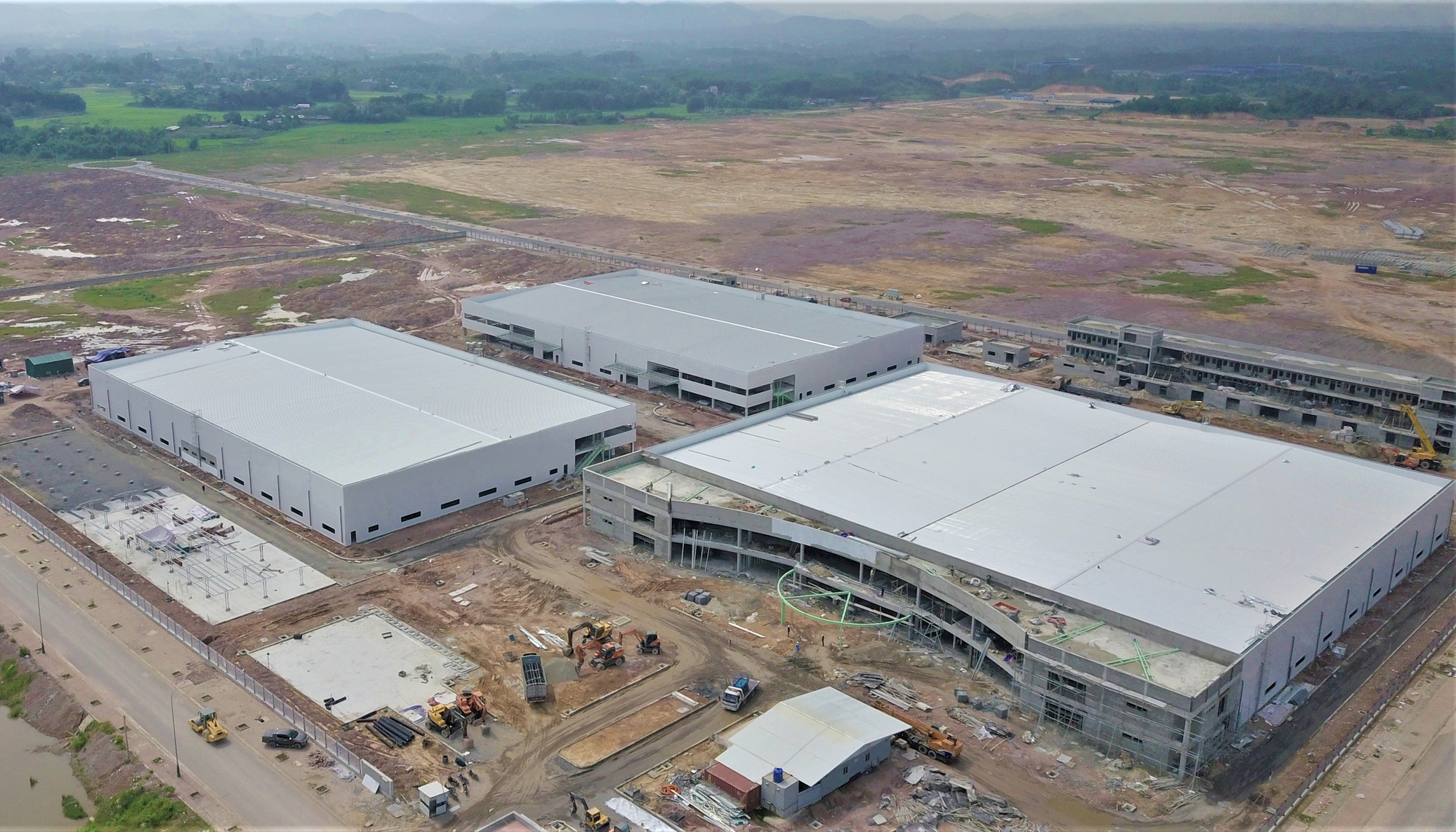
That is one of the comments of Ms. Trang Bui, Senior Director of Vietnam Market, JLL about the evolution of the industrial real estate market. According to Ms. Trang Bui, industrial real estate continues to be an attractive segment thanks to possessing many advantages, despite the impact of Covid-19.
Contrary to concerns about the scenario that may go wrong when some industrial zones in Bac Giang and Bac Ninh become complicated outbreaks, reports from the industrial real estate segment research organization are consistent. record a positive indicator of performance.
According to a recent report of the Ministry of Construction, the average occupancy rate in industrial parks in the five main industrial provinces in the North and South is stable at about 85-90%.
Notably, the average asking price of industrial land by area is stable. In the North, the average asking price of industrial land is about 1.8 million/m 2 /lease period. Meanwhile, the average asking price of industrial land is about 768 thousand/m 2 /lease cycle. This figure in the South fluctuates 1.7 million/m2/lease cycle.
Industrial land rental rates are assessed to be increasing steadily, in line with the improved warehouse quality and the recent increase in demand for factories.
A warehouse is in the process of being built and completed, preparing to receive the demand for warehouse rental from manufacturing enterprises.
Savills’ latest industrial real estate market report also recorded an increase in occupancy rate in the Northern key economic area over the same period, specific occupancy rates: in Hanoi up to 90%, Bac Ninh is up to 95%, Hung Yen is 89% and Hai Phong is 73%. Meanwhile, the southern area recorded the occupancy rate in Ho Chi Minh City is 88%, Binh Duong is 99%, Dong Nai is 94%, Long An is 84%, Ba Ria – Vung Tau is 79%.
According to experts, the fourth outbreak of the Covid-19 epidemic will not change the heat of industrial real estate. According to Savills Vietnam, industrial real estate is still on the rise and is sought after by domestic and foreign investors.
Ms. Trang Bui, Senior Director of Vietnam Market, JLL said, choosing Vietnam as a destination for foreign businesses will not change because the decision to relocate the factory, the supply chain is calculated. elaborate. The JLL leader pointed out that investors must survey many industrial parks, in different locations as well as evaluate logistics services in provinces and cities, and the associated supply chain. On the other hand, the epidemic affects not only one region but also the whole country. Meanwhile, Vietnam is still considered as one of the countries with good epidemic control.
Forecasting the scenario of the industrial real estate segment in the last months of 2021, many experts believe that this will still be a segment with good resistance to the epidemic.
According to the report of Savills Vietnam, citing the assessment from Focus Economics publication, industrial real estate is benefiting from the general economic picture such as the average growth of the good economy, stable political environment, costs. low labor force, relatively skilled labor force. In particular, Vietnam has been very successful in attracting FDI. Besides, Vietnam is an attractive point where companies want to move out of China due to the US-China trade war.
“Industrial real estate will continue to be the ‘baby’ of the real estate industry in general, with high demand and increased capital market activity,” emphasized Mr. Troy Griffiths – Deputy General Director of Savills Vietnam. .
Meanwhile, Ms. Trang Bui also pointed out the factors that make Vietnam’s industrial real estate continue to grow well. The first is that Vietnam’s geographical position is right next to China. Foreign corporations can move factories and supply chains to Vietnam thanks to a reasonable distance.
On the other hand, although China is the world’s production cradle, according to Ms. Trang Bui, foreign corporations want to distribute risks by having production headquarters in many countries, reducing the risk of supply chain disruption. For example, the headquarters in China may be frozen due to Covid-19, businesses still have production plants in Vietnam to continue operating.
The expert coming to JLL said that foreign corporations all have the need to expand their production scale, while the cost of warehouse rental and labor costs in China is high, reducing competitiveness. goods. In contrast, Vi
In response to the question that raises concerns that the wave of factory relocation from China to Vietnam is actually not as massive as many experts predict, Ms. Trang Bui emphasized, China is the cradle of large industrial production. best of the world. Therefore, just 5% of factories, the supply chain from China to move to Vietnam is enough to fill the warehouse.
Thanks to the golden advantages, most experts confirm that the scenario of the industrial real estate market will not be affected by the re-emergence of the Covid-19 wave. In the coming time, when Vietnam promotes the community vaccination program, herd immunity is established, industrial real estate will rise like a spring, continuing to become an investment channel leading the market.



















